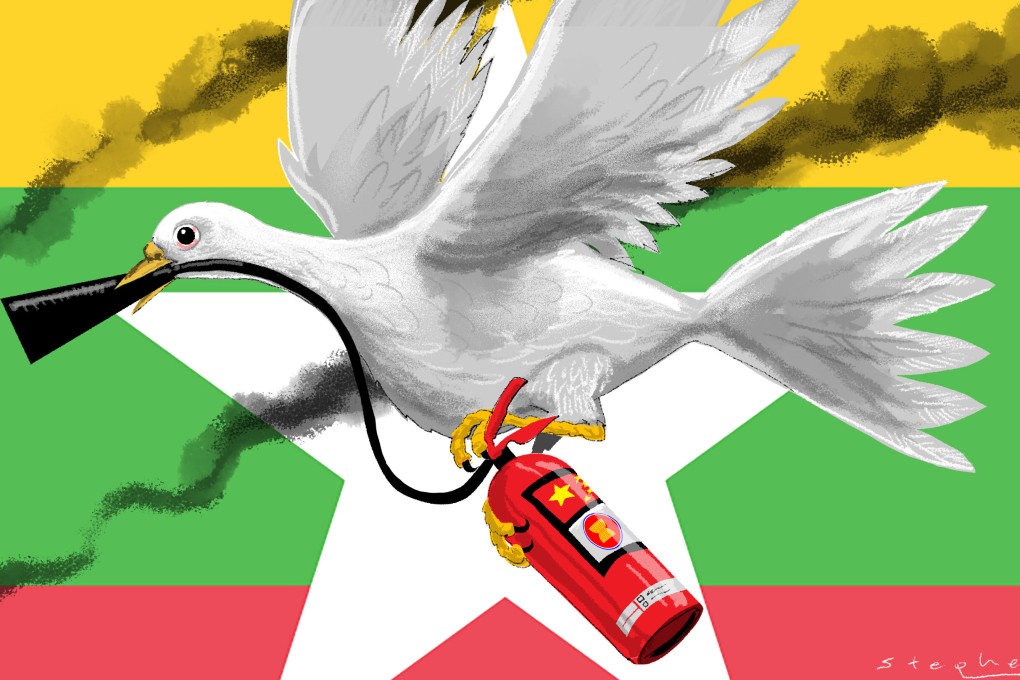Advertisement
Opinion | Myanmar coup: China’s careful response a delicate balancing act
- Working with and through Asean is a step in the right direction as Beijing navigates the sensitivity around its investments in Myanmar while respecting Myanmar’s autonomy
Reading Time:3 minutes
Why you can trust SCMP
2

What should China do about Myanmar amid media reports of Myanmese resistance to the dramatic February 1 coup? In theory, Myanmar being a neighbour means its domestic developments are more consequential to China than many other major countries’ and hence deserves much attention.
In reality, Myanmar barely features in Chinese discussions about its environment and the relationships it should nurture.
Part of this lack of attention can be attributed to China’s foreign ministry, which innovatively nestled its response to Myanmar’s military takeover within Asean’s response.
Advertisement
This position was reaffirmed at Chinese Foreign Minister Wang Yi’s recent meetings in Fujian with his counterparts from four Association of Southeast Asian Nations members. The choice is praiseworthy as relations between China and Myanmar are complex.
Another possible explanation is that China’s plate of foreign policy issues is so full that addressing change in Myanmar either gets lost in public attention or receives a low priority.
Advertisement
Advertisement
Select Voice
Choose your listening speed
Get through articles 2x faster
1.25x
250 WPM
Slow
Average
Fast
1.25x

